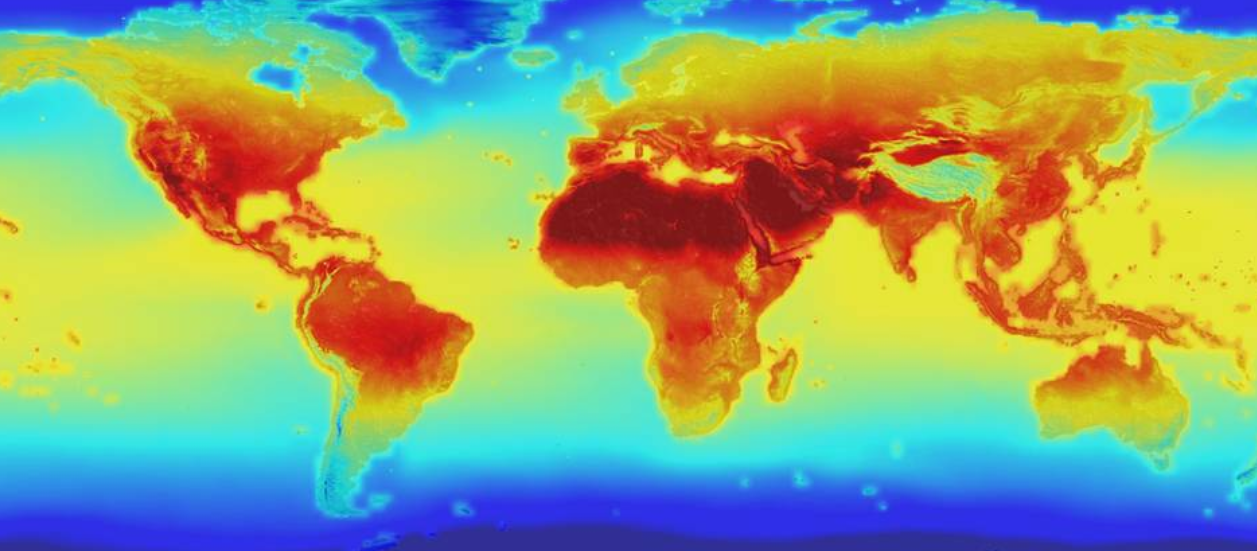
As We Boil, Big Oil Finally Admits It Can’t Burn All its Oil
The head of Strategy for BP, Dominic Emery, has admitted that some of the company’s oil and gas “won’t see the light of day.”

C: NASA
As we experience unprecedented temperatures, Big Oil finally has sat up and smelt the coffee and admitted that it won’t be able to burn all its oil and gas.
It certainly is getting hot out there. The data does not lie. New data has confirmed what many in Northern Europe, already knew: We have just had the hottest June on record.
The abnormal is becoming normal. It was so hot in Spain last week that even manure self-ignited. In California, it was so warm that mussels boiled in their shells.
Further north, there was “record-breaking heat” across Alaska, with the town of Anchorage experienced higher than average temperatures nearly every day of June, which according to the Guardian newspaper is having “a cascading effect.”
The paper notes: “Alaska is trapped in a kind of hot feedback loop, as the Arctic is heating up much faster than the rest of the planet … As ocean temperatures rise, the coasts heat up, with potentially catastrophic consequences on land and in the water. And all that local heat contributes to faster planet-wide warming.”
University of Alaska climate specialist Rick Thoman told the Guardian: “I intentionally try to not be hyperbolic, but what do you say when there’s 10- to 20- degree ocean water temperature above normal? How else do you describe that besides extraordinary?”
But it is not just Alaska that is locked into warming. Yesterday, experts said that climate change had made the record heat in Europe at least five times as likely to happen.
The results of our rapid attribution study are out. We defined it as the June max of 3-dy daily mean temperature in France/Toulouse in June. This was at least five times more likely due to climate change @FrediOtto @RobertVautard @SISeneviratne @StottPeter https://t.co/bxPxjAzoWv
— Geert Jan van Oldenborgh (@gjvoldenborgh) July 2, 2019
In response to the record-breaking heat, Professor Hannah Cloke, natural hazards researcher at the University of Reading, told the Independent: “We knew June was hot in Europe, but this study shows that temperature records haven’t just been broken. They have been obliterated.”
As we all boil, it seems Big Oil has finally woken up to belatedly smell the coffee that not only are we in trouble, but so are they.
According to a report in Bloomberg, the head of Strategy for BP, Dominic Emery, has admitted that some of its oil and gas “won’t see the light of day.”
Emery admitted that some of the more expensive oil and gas would become “stranded” and have to stay in the ground, in part because of climate change and partly due to the oil price.
“There are classes of resources that are kind of much further out and more complicated to extract,” Emery said in an interview with Bloomberg. “There’s no doubt that some of those resources won’t come out the ground.”
Emergy’s admission comes as a new academic study, published in the journal Nature, found that we already have too many fossil-fuel power plants to meet the UN Paris climate goals and keep global warming below 1.5°C.
The study concludes: “1.5°C carbon budgets allow for no new emitting infrastructure and require substantial changes to the lifetime or operation of already existing energy infrastructure.”
This means that no new fossil-fuel infrastructure should be built and some existing infrastructure needs to be shut down early.
Glen Peters, research director at Norway’s Center for International Climate Research said that to stay below 1.5°C or 2°C, “it’s very likely fossil infrastructure will have to be retired earlier than planned”.
Indeed, as the Financial Times reports today: “Oil has long been known as a dirty fuel. For investors, it is now a dirty word.”
No wonder the man from BP is finally worried.
